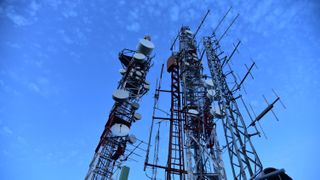Biden signs law blocking Huawei and ZTE from FCC licenses
Companies on the FCC's covered list will no longer be able to receive new equipment licenses

After being approved by both the House and Senate, President Biden has signed the Secure Equipment Act into law which will prevent Huawei and ZTE from receiving new equipment licenses from US regulators.
Under the Secure Equipment Act, foreign companies that have been designated as national security threats will be unable to receive licenses from the Federal Communications Commission (FCC) and their equipment won't be used in the country's telecommunications network.
The FCC officially designated Huawei and ZTE as national security threats last year after it found that both companies have ties to the Chinese Communist Party (CCP). However, both firms were still able to apply for licenses from the FCC as long as no federal funds were involved.
For this reason, FCC Commissioner Brendan Carr has been pushing legislators to pass the Secure Equipment Act which would prevent Huawei, ZTE, Hytera Communications Corporation, Hangzhou Hikvision Digital Technology Company and Dahua Technology Company from receiving new equipment licenses altogether.
Rip and replace
In an effort to help telecommunications companies remove equipment from Huawei and ZTE still being used in their networks, the FCC launched a $1.9bn rip and replace program back in July of this year.
The program itself helps subsidize the cost for smaller firms to replace equipment from Chinese tech firms in order to further secure US networks. However, to be eligible for the funds, US telecommunications firms must serve 10m or fewer customers.
Any company that obtained equipment from Huawei, ZTE or other tech firms that pose a risk to national security before June 30, 2020 can apply to be reimbursed by the US government for their replacement costs.
Are you a pro? Subscribe to our newsletter
Sign up to the TechRadar Pro newsletter to get all the top news, opinion, features and guidance your business needs to succeed!
Now that President Biden has finally signed the Secure Equipment Act into law, the US is one step closer to securing its telecommunications network from potential espionage efforts from the Chinese government.
Protect your privacy online with one of the best VPN services
After working with the TechRadar Pro team for the last several years, Anthony is now the security and networking editor at Tom’s Guide where he covers everything from data breaches and ransomware gangs to the best way to cover your whole home or business with Wi-Fi. When not writing, you can find him tinkering with PCs and game consoles, managing cables and upgrading his smart home.
Most Popular



